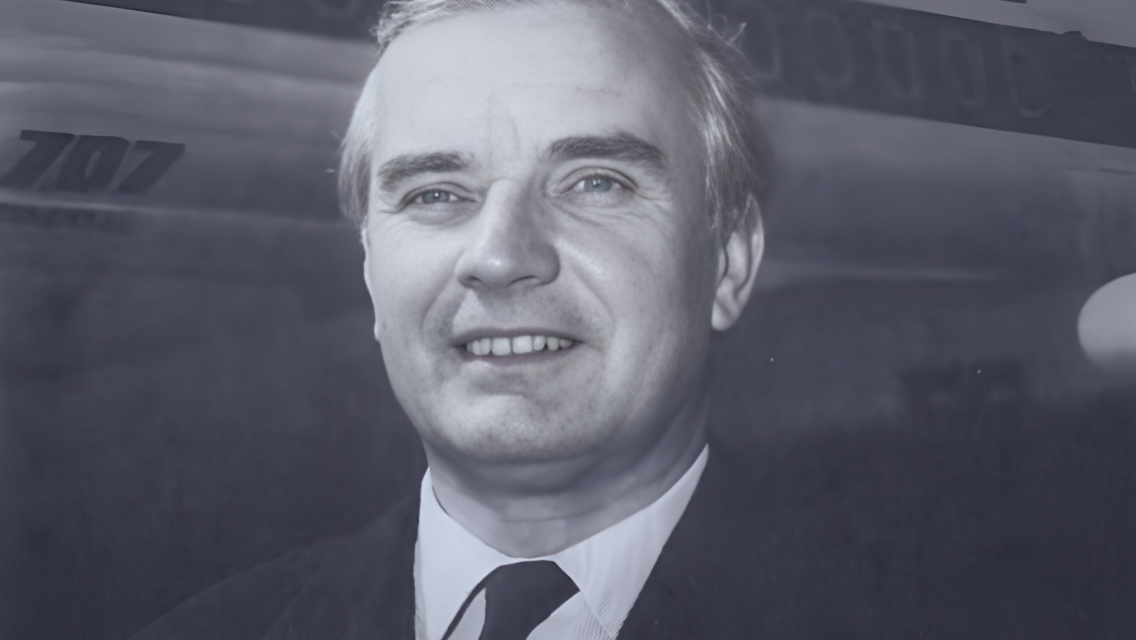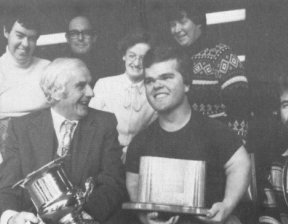From The White House to 10 Downing Street, the impact of Reverend Kenneth (‘KT’) Jenkins’ vision inspired a global generation of progressive change to empower people with disability.
Fortunately for Bedford, we were the birthplace for Kenneth's vision to unfold.
More than 60 years on, Bedford is honouring Kenneth’s extraordinary legacy, awarding the first posthumous Life Membership in the organisation’s 79 years.
At Kenneth’s retirement in 1981, he was given a telescope. Inscribed on it were the words - 'To honour Mr Kenneth T. Jenkins, a man of vision'. Kenneth foresaw a new way of life for people with disability, unhindered by outdated misconceptions and perceived limitations. To Kenneth, the word ‘defeat’ didn’t exist and ‘no’ wasn't an acceptable answer.
During his 20 years at Bedford, in roles ranging from Administrator, to Director, then Vice Patron, Kenneth wholeheartedly encouraged this same attitude.
In Iris Nesdale’s chronicle of Bedford’s history, A Bridge to Independence, Kenneth is described as 'a resolute man, with the determination of the Celt blood in him.'
Born in Carmarthen in Wales, Kenneth graduated from Oxford with honours in modern history and theology. In September 1939, he became the first Chaplain in the RAF Volunteer Reserve. After the war, he was appointed Chaplain to the King's Flight.
After a period as Chaplain to the Iraq Petroleum Company, Kenneth came to Australia, accepting a position as Chaplain of St Peters College in Adelaide.
When the opportunity came to join Bedford Group in 1960, Kenneth did not hesitate. Since his undergraduate days he had wanted to work in the disability support sector. Kenneth had a genuine understanding of some of the challenges people with disability faced, having himself overcome emphysema and asthma as a child.
Until 1960, Bedford’s focus had been on supporting the rehabilitation of people with tuberculosis (TB). With TB 'pretty much under control' by then, Kenneth recognised the need and opportunity for change.
Under Kenneth’s leadership, Bedford expanded; increasing staff and equipping as a multi-diagnostic and disability support services centre. By 1962, Bedford employed 251 people with disability and more than half gained employment in the community that same year.
Kenneth fought hard to draw Government attention to the economic potential of funding Bedford and other similar groups. And by 1967, the Australian Government was subsidising Bedford two-to-one.
Bedford products were being sold Australia-wide, from extension ladders in South Australia, to garden furniture in Tasmania. A book-binding department was servicing more than 450 schools, while Bedford’s textile department was producing sheets and pillowcases for hospitals throughout the country.
Kenneth would then take his passion, pragmatism and influence to the global stage.
As Bedford Director, he attended the triennial Convention of Rehabilitation in Ireland in 1970. He visited rehabilitation centres and workshops in the United States, Canada, Great Britain and throughout Europe to discuss and inspect the latest international developments in disability services.
In 1971, Kenneth became the first Australian to receive an invitation to The White House to speak at the Annual General Meeting of the President's Committee on employing people with disability.
In the mid-1970's, as President for the International Society for Rehabilitation of the Disabled, Kenneth presented the inaugural speech at the 13th World Congress of Rehabilitation International in Israel.
In 1979, then British Prime Minister, Mr James Callaghan, held a reception in Kenneth’s honour at 10 Downing Street.
Kenneth’s personal friend and former assistant, Lieutenant Colonel Dyer, described the man affectionately known as ‘KT’ as "a complex and remarkable person, with the ability to translate dreams into actions."
Kenneth was invited to speak in no fewer than sixty three countries to consult and advise, confer and speak, on issues affecting people with a disability. And after more than six decades, the ripple effect of KT’s dreams and actions continues.
The 'Kenneth Jenkins Oration' continues to be presented at the National Disability Services’ Executive Leaders Conference each year, delivered by a person who has demonstrated significant contribution to the Australian disability community.
Kenneth’s speech, ‘The Question of Perspective’, is still quoted at NDIS and Human Rights Commission events today.
In 1981, Kenneth was made an Officer of the Order of Australia for his services to people with disability and he became Vice Patron of Bedford.
In Kenneth’s retirement speech that year, his words resonated with many:
‘Thank you for what you are, for what you have been, and for what you will become.’
On behalf of the countless people who have been empowered to forge life skills, independence and career pathways because of Kenneth’s pioneering vision and determination, we thank you, KT, for what you became, for what you were and for what you will always be - to us.
Image: Kenneth T Jenkins retirement in 1981.


